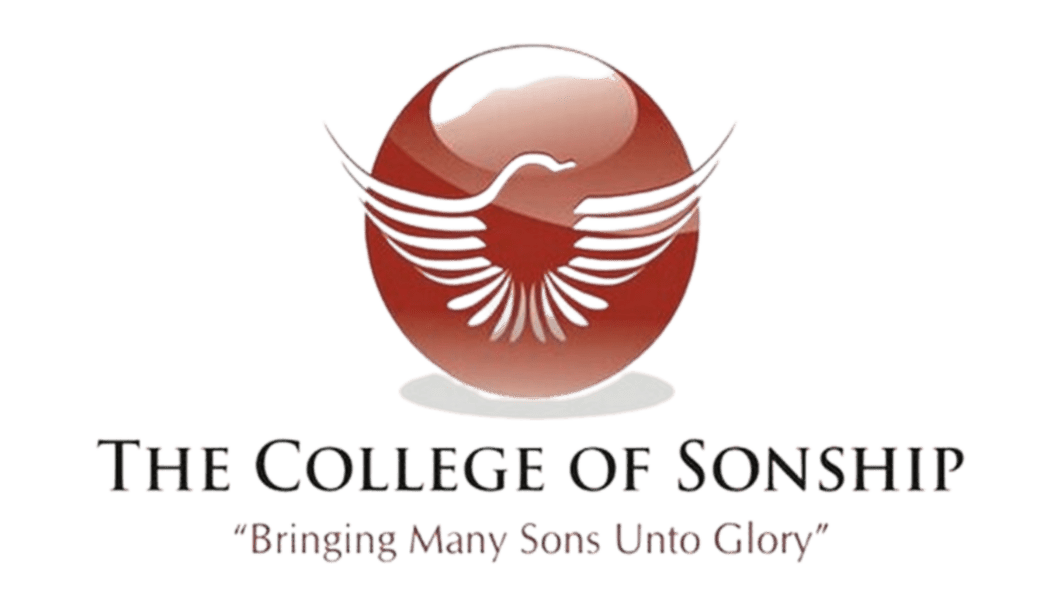Our Curriculum
Mission Statement
The College of Sonship (COS) has designed a curriculum that is committed to providing the highest quality end-time spiritual and entrepreneurial education through the use of innovative information technologically-based products, quality spiritual academic service and reliable technical support.
Statement of Faith
- We believe that both the Old and New Testaments are the inspired Word of God, revealing the three Persons of the Godhead: Father, Son and Holy Spirit.
- We believe in the incamation and virgin birth of our Lord and Savior Jesus Christ as true God and true man.
- We believe that man was created in the image of God, but is separated from God by sin.
- We believe that man is redeemed by grace through faith in Christ's vicarious atonement for sins by the shedding of His blood on the cross.
- We believe that the gift of eternal life is available to all men, that those who are regenerated by the Holy Spirit receive Christ by faith and thereby become children of God.
- We believe in the bodily resurrection of Christ, His imminent return, and the resurrection of His people to life everlasting.
Philosophy
The philosophy of COS is rooted in a Christ worldview and is guided by the mission and statement of faith of its parent company, Hands of the Lord Ministries, Incorporated (HOTLM). It is from these roots that the college answers key philosophical questions. What is the nature of the student? What is the learning process? What is the role of the teacher?
The Nature of the Student
COS embraces the biblical teaching that mankind is created unique in the image of God, and that man is a spirit, has a soul, lives in a body and is a social being; therefore, the college places emphasis on the whole man spirit, soul and body (1 Thessalonians 5:23). COS recognizes the teaching that, due to man's fallen or sinful nature, discipline is needed to train the will and to build redeeming character, behavior and habits in the student. In First Corinthians, Paul identifies mankind as individuals who are unique and possess special talents and abilities By virtue of these differences, the college institution and teacher will attempt to reach and teach each individual student where he is academically and spiritually To accomplish this, the college individualizes the instruction with the idea of taking the student from “where he or she is” to “where he or she needs to be.” The individualizing process provides each student with appropriate learning tasks at an appropriate point in tme with a given set of appropriate standards and content.
The Learning Process
The learning process for man is characterized by a need for ongoing feedback from within one's self and from the input of others. Both internal and external feedback, based on conversations between a spiritual guide and the student, become integral, personalized elements used within the structure of the learning process at the college. This format of personalized instruction ensures contact between COS staff and COS students so that personalized feedback regularly takes place. Through personal contacts with the COS staff, students have vaned opportunities to correct, apply and broaden what is learned. Moreover, these contacts provide checkpoints at which teachers can provide consultation, guidance, motivation and/or instruction about an application and share thoughts and ideas.
The Role of the Teacher
In this view of the learning process, education is modeled as well as taught. Personalized instruction brings to life the things that ought to be learned. The teacher's act as “models” that personify life's challenges and help bring about learning. They are “motivators” who encourage. They are “guides” who help lead and direct students to a transformed life. Although al a distance, the college teachers fill this role by working in tandem with the students by helping them understand the school’s purpose and program So that they effectively fill their roles.
Thus, the distant teacher does not replace the instruction of the church, but serves to assist with the student's spiritual pilgrimage and education
